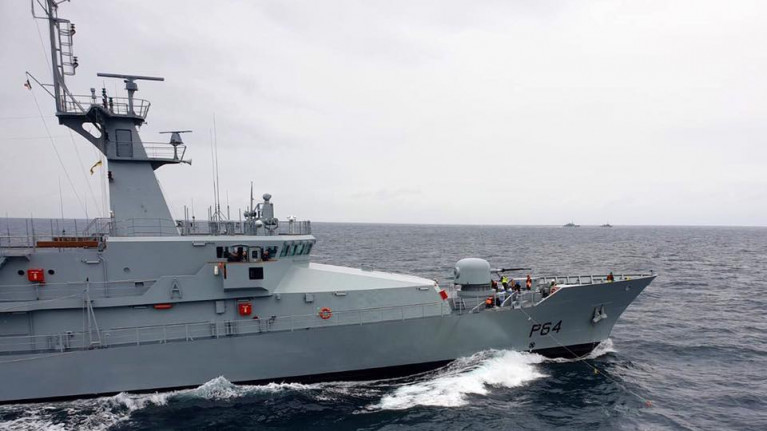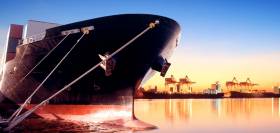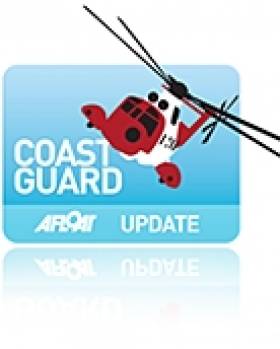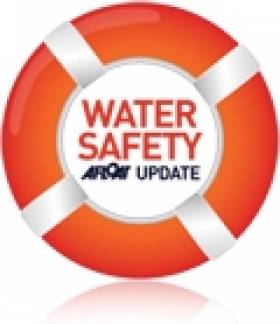Displaying items by tag: security
Expert Group Tells Government to Bolster Naval Service to Protect Irish Maritime Security
A submission from an expert group to the government says it must bolster the Naval Service to protect the country's maritime security.
The submission, seen by the Irish Examiner, was made by the Irish Maritime Forum, an independent and non-political collegiate of professionals who have a wide range of experience across the maritime domain.
It was sent to the government as part of the public consultation on a new National Security Strategy which will lead how the State protects its national security and vital interests from current and emerging threats over the period 2020-2025.
The maritime forum members said the balance between the elements of the Defence Forces should reflect the fact that we are an island nation, with a sea area of control eight times our landmass.
To this end, the forum says the Naval Service should be upgraded to reflect international norms and its strengths and capabilities be enhanced.
More on this story by clicking here.
Brussels Issues Brexit Preparedness Notice On Maritime Security
#Brexit - The latest notice from the European Commission to stakeholders on Brexit preparedness concerns the field of aviation and maritime security.
Subject to any transitional arrangement that may be contained in a possible withdrawal agreement, as of the withdrawal date, the EU rules in the field of aviation security and maritime security will no longer apply to the United Kingdom.
In the maritime context, this will have consequences with regard to mandatory security information for passenger ferry services in the EU, from which the UK is exempt as a member state, and security inspections of vessels which the UK will no longer be able to carry out.
To date the Department of Transport, Tourism and Sport has published five Brexit preparedness notices relevant to maritime transport.
Full details of preparedness advice for maritime security are included in Marine Notice No 37 of 2018, a PDF of which is available to read or download HERE.
#ClubNews - Sailing clubs are urged to give their security a rethink as news emerges of thieves apparently targeting boats in storage for their aluminium.
The Flying Fifteen Blog highlights a recent incident at Welton Sailing Club on the Humber Estuary in which "a significant number of aluminium masts were stolen from dinghies".
A member of Humber Yawl Club wrote of the break-in: "Shroud wires have been cut to release the masts, which must have been removed in either a lorry or a van.
"While the club has experienced break-ins in the past, this is the first occasion when aluminium materials have been stolen. It would appear the club was targeted specifically for this material."
That metal thieves, who commonly steal copper from railway cabling or lead from roofs, have turned their attention to aluminium fittings on boats should be of great concern to boat clubs throughout the UK and Ireland.
Many club storage facilities have at best only the protection of a padlock in exposed dinghy parks, as theft of boats themselves is a riskier proposition for criminals.
But as the scrap value of the aluminium boats contain increases, perhaps we should take another look at our boat club security measures.
EU-Wide Coastguard Would Tackle Drug Smugglers Says MEP
#Coastguard - Dublin MEP Gay Mitchell has called for the formation of a Europe-wide coastguard to tackle the scourge of drug smuggling, as Herald.ie reports.
The Fine Gael MEP said that cocaine in particular "is still entering the EU from South America" through the larger commercial ports in Belgium and the Netherlands.
He also claimed that Ireland "is losing €526m per year in revenue" due to tobacco smuggling.
His comments come as Justice Minister Alan Shatter outlined Ireland's determination to address the potential for collaboration by enhancing maritime safety, security and surveillance in the EU during the State's EU presidency.
These moves come a year after the director of the Irish Coast Guard said greater co-operation between Europe's coastguard organisations is inevitable.
As previously reported on Afloat.ie, IRCG chief Chris Reynolds told the audience at the Search and Rescue 2012 in Dublin that Europe's governments needed to develop a "sense of urgency" on the issue to deal with disasters such as the Costa Concordia tragedy.
Firm Offers Security for Wexford Lifebuoys
A security firm based in Wexford town has offered electronic protection and 24-hour monitoring to Wexford County Council in a bid to secure funding for lifebuoys on Wexford Bridge.
According to the Wexford People, the move comes after a spate of accidents involving people falling from the bridge, which is one of the longest in Ireland. The original lifebuoys were removed several years ago due to vandalism.
SAR Ireland has more on the story HERE.


































































